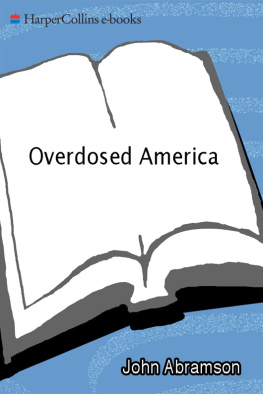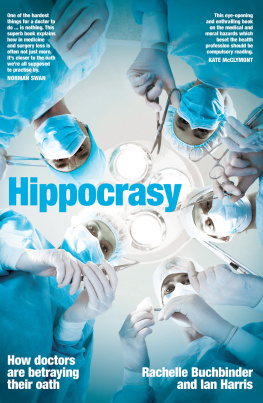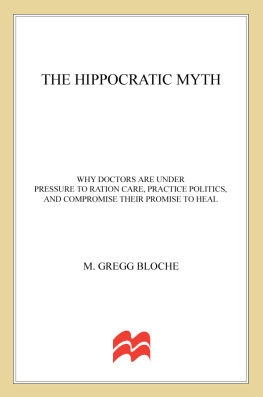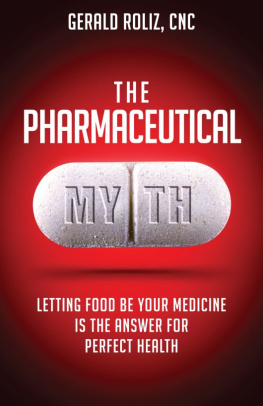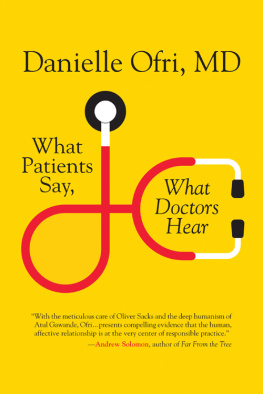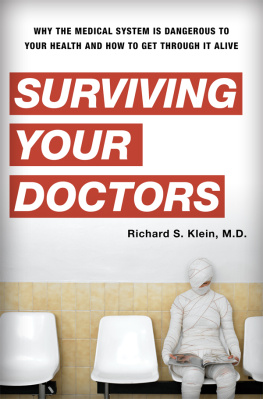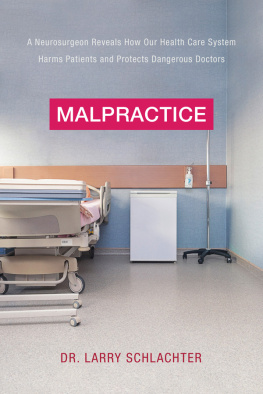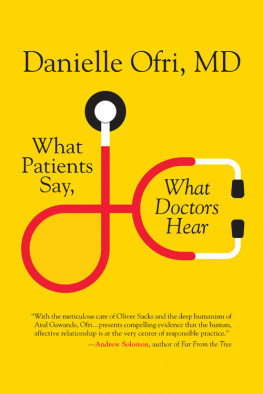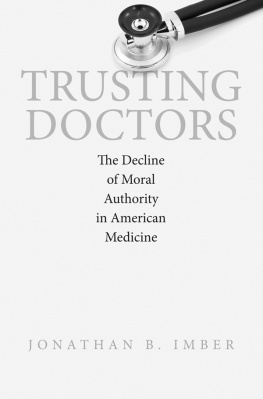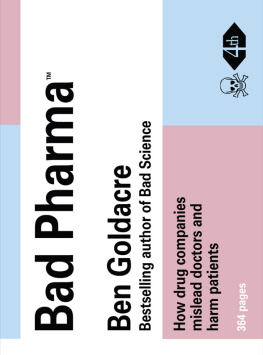
To Charlotte, who gave me the courage to go forward with this project.
And in memory of Bruce Spitz, my trusted colleague and friend.
It is no limitation upon property rights or freedom of contract to require that when men receive from government the privilege of doing business under corporate form... they shall do so upon absolutely truthful representations.... Great corporations exist only because they are created and safeguarded by our institutions; and it is therefore our right and duty to see that they work in harmony with these institutions.
Theodore Roosevelt
CONTENTS
When Overdo$ed America was first published, I expected the book to generate immediate excitement. After all, the book exposes many of the drug companies well-kept secrets, such as the misrepresentation of their own research on Vioxx and Celebrex in our most respected medical journals and the pushing of cholesterol-lowering drugs on millions of Americans, unsupported by the scientific evidence. I had spent nearly three years documenting the undue influence of the drug and other medical industries on American health care and was sure that the response to my findings would be explosive.
During the first week after publication the silence was deafening. Maybe doctors were not ready to accept that much of the scientific evidence upon which they base their medical decisions is more like infomercials than disciplined science. Maybe the American public was not ready to swallow this bitter, but critically important, pill.
Then, just one week after the book hit the stores, Merck stunned the medical world with its announcement that it was withdrawing its $2.5 billion a year arthritis remedy Vioxx from the market. This was the biggest drug recall ever(about one out of ten American adults had taken Vioxx in the previous five years.
Initially Merck was credited with acting responsibly and decisively when it learned that its blockbuster drug doubled the risk of serious cardiovascular problems in a study designed to determine whether Vioxx reduces the recurrence of non-cancerous polyps of the colon. But the real news was not that Merck had done the right thing in September 2004 (which it had). Rather it was that American doctors had prescribed $7 billion worth of Vioxx, causing an estimated tens of thousands of heart attacks and deaths, after both Merck and the FDA had become aware (in 2000) that Vioxx was significantly more dangerous and no more effective than an older and far less costly anti-inflammatory drug, naproxen (Aleve).
Suddenly it was as if the waters had parted or the code of silence lifted. Americans wanted to know how a non-essential drug that turned out to be so dangerous had become so widely used. The media responded. Instead of being ignored, I was invited to explain to millions of Americans how this had happened on NBCs Today show, CNNs American Morning, Lou Dobbs Tonight, and on all the other major networks.
In the following three months an unprecedented string of drug company failures and embarrassments came to light. Just one week after the Vioxx recall, Americans learned that half of our supply of flu vaccine, 46 million doses, would not be arriving as planned from a manufacturing plant in Liverpool, England. The plant, which sends 90 percent of the flu vaccine it makes to the United States, had been abruptly shut down. Bacterial contamination of four million doses of flu vaccine was the initial sign of trouble, but the underlying problem was the inadequacy of the manufacturing safety systems. With most of the flu vaccine being produced in this plant headed for the United States, one might assume that the FDA had been actively monitoring the safety of these imported medicines-especially given its oft-expressed concern about the potential danger to individual citizens of importing drugs from abroad. But it wasnt the FDA that shut down the plant in England. In fact, FDA officials were taken by surprise when they were informed that the British drug authorities had shut the plant down to protect Americans from unsafe flu vaccine being produced by an American companys plant in the United Kingdom. This debacle was an accident that had been waiting to happen, at least in part the result of having transferred more than one thousand FDA employees into the department that approves new drugs (like Vioxx) and out of the department that oversees drug safety (like inspecting manufacturing plants).
This was not all. The following week the FDA issued a strong warning about the use of antidepressants in young patients: Antidepressants increase the risk of suicidal thinking and behavior (suicidality) in children and adolescents. a year and a half earlier, based upon the same information that had been available to the FDA. Eight months before the warning was issued in the United States, an FDA Advisory Committee met to discuss the potential danger of these drugs. But the FDAs own epidemiologist, who had been heading up this investigation, was removed from the agenda and not allowed to present his report.
Although the six studies involving young patients that had been published in medical journals showed that antidepressants are safe and effective, : a black box warning on the drug label and a patient information sheet to accompany the medication. In other words, the drug companies had maintained sales of largely ineffective drugs by not publishing results from their own studies showing that the new antidepressants increase suicidal behavior in youngsters, thus leaving doctors uninformed about these negative studies. When confronted with this situation, the FDAs reaction was first to protect the drug companies rather than our children. (This brings to mind the maxim that the best measure of a society is how it treats its most vulnerable members.)
This rapid-fire series of events may have brought us to a watershed in American medicine, dispelling the illusion that whats good for the drug companies is good for Americans and helping us to understand that we are not getting commensurate value for the enormous cost of our health care. Probably the greatest cause for optimism is the Senate Finance Committee hearing called by Sen. Grassley (R-Iowa) to investigate whether the FDA and Merck had adequately monitored the safety of Vioxx. Americans were given the opportunity to witness academic researchers and public employees describing how drug companies wield influence and suppress information. Most of the senators on the committee appeared to care deeply about protecting Americans from the unnecessary dangers of potentially harmful drugs and seemed to understand that the FDA is not now providing adequate monitoring of drug safety.
As the litany of previously undisclosed risks of some of our most widely used drugs grows ever longer, most of the attention is being focused on the FDA. Certainly reform at the FDA is necessary to improve the safety and effectiveness of our medical care, but this is in no way sufficient to achieve all our goals. Like a dentist not drilling all the way to the bottom of a cavity, we are still not getting to the bottom of the problem, and anything less is going to squander this extraordinary opportunity.
The over-use of Vioxx, Celebrex, and cholesterol-lowering drugs in adults, and antidepressants in children and adolescents all show that at the heart of the crisis in American medicine is a crisis in the quality of our medical knowledge. As you will learn in the pages to follow, the corruption of that knowledge extends far beyond the reach of the FDA. Overdo$ed America
Next page
